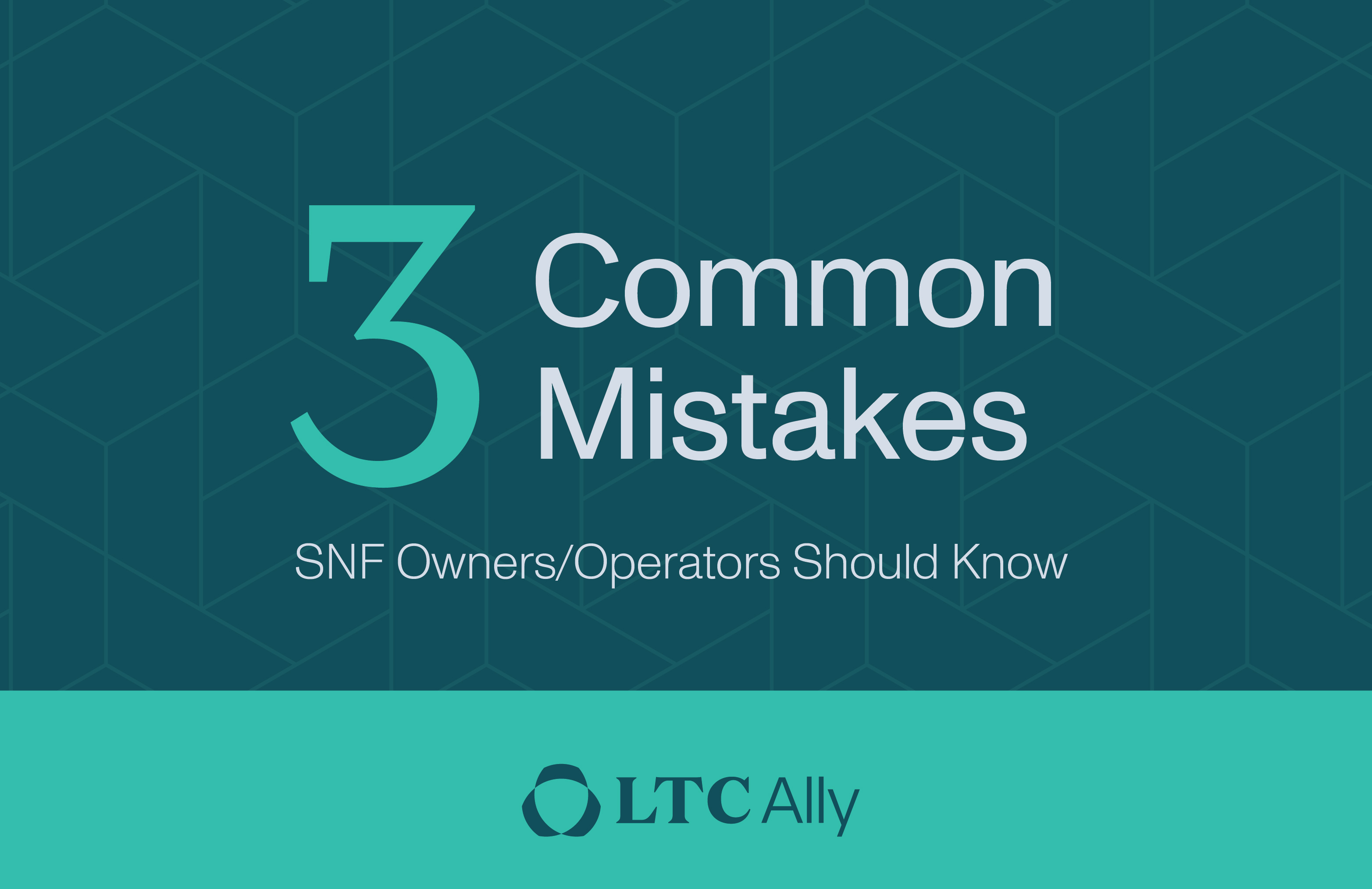As skilled nursing facility (SNF) owners and operators, navigating the complex landscape of insurance claims can be daunting. Ensuring that claims are processed smoothly and efficiently is crucial for maintaining financial stability and providing quality care to residents. However, there are common mistakes that can lead to claim denials, causing unnecessary delays and revenue loss. In this article, we’ll explore three of the most common mistakes and provide insights on how to avoid them.
- Incomplete Documentation:
One of the primary reasons for claim denials is incomplete documentation. SNF staff may overlook crucial details or fail to provide necessary documentation, leading to claim rejections by insurance companies. This can include missing patient information, incomplete medical records, or inadequate documentation of services provided.
To avoid this mistake, it is necessary to implement thorough documentation protocols. Ensure that all relevant information is accurately recorded, including patient demographics, medical history, treatment plans, and progress notes. Regular training and audits can help reinforce the importance of comprehensive documentation among staff members.
- Coding Errors:
Coding errors are another common cause of claim denials. Incorrectly assigning procedure codes or diagnosis codes can result in claim rejections or payment discrepancies. Common coding mistakes include using outdated codes, incorrect code modifiers, or failing to meet specific coding guidelines.
To mitigate coding errors, it is advisable to invest in ongoing staff training and education on coding practices. Utilize reputable coding resources and software tools to ensure accuracy and compliance with industry standards. Regular audits and reviews of coding practices can help identify and address potential errors before claims are submitted.
- Lack of Pre-Authorization for Services:
Failing to obtain pre-authorization for certain services can result in claim denials from insurance companies. Many insurance plans require pre-authorization for specific treatments, procedures, or equipment before they can be reimbursed. SNF owners and operators should familiarize themselves with each resident’s insurance plan requirements and ensure that pre-authorization is obtained when necessary. Implement a proactive system for tracking and obtaining pre-authorizations, and communicate effectively with healthcare providers to streamline the process. By securing pre-authorizations upfront, SNFs can avoid claim denials and ensure timely reimbursement for services rendered.
Partnering with LTC Ally’s Expert AR Department:
Navigating the complexities of insurance claims can be challenging for SNF owners and operators. That’s why LTC Ally offers expert Accounts Receivable (AR) services, boasting a remarkable 98% track record of successfully getting claims paid. Our dedicated team of professionals understands the intricacies of claim processing and works tirelessly to maximize reimbursements for our clients.
By utilizing LTC Ally’s AR department as your back office, you can rest assured knowing that your claims are in capable hands. Our expertise and commitment to excellence can help streamline your revenue cycle management and optimize financial performance for your SNF.
In conclusion, avoiding claim denials requires diligent attention to detail and adherence to best practices in documentation, coding, and billing. By implementing robust protocols and leveraging the expertise of partners like LTC Ally, SNF owners and operators can mitigate risks and ensure timely reimbursement for services rendered.
